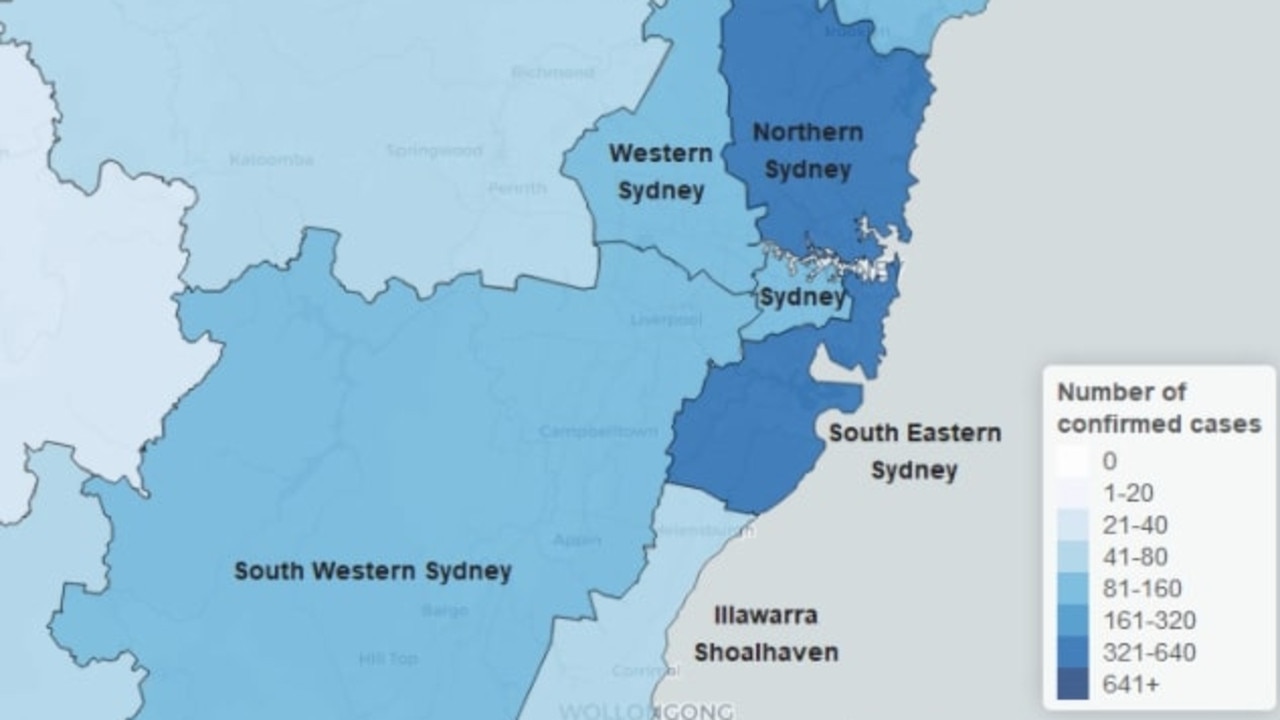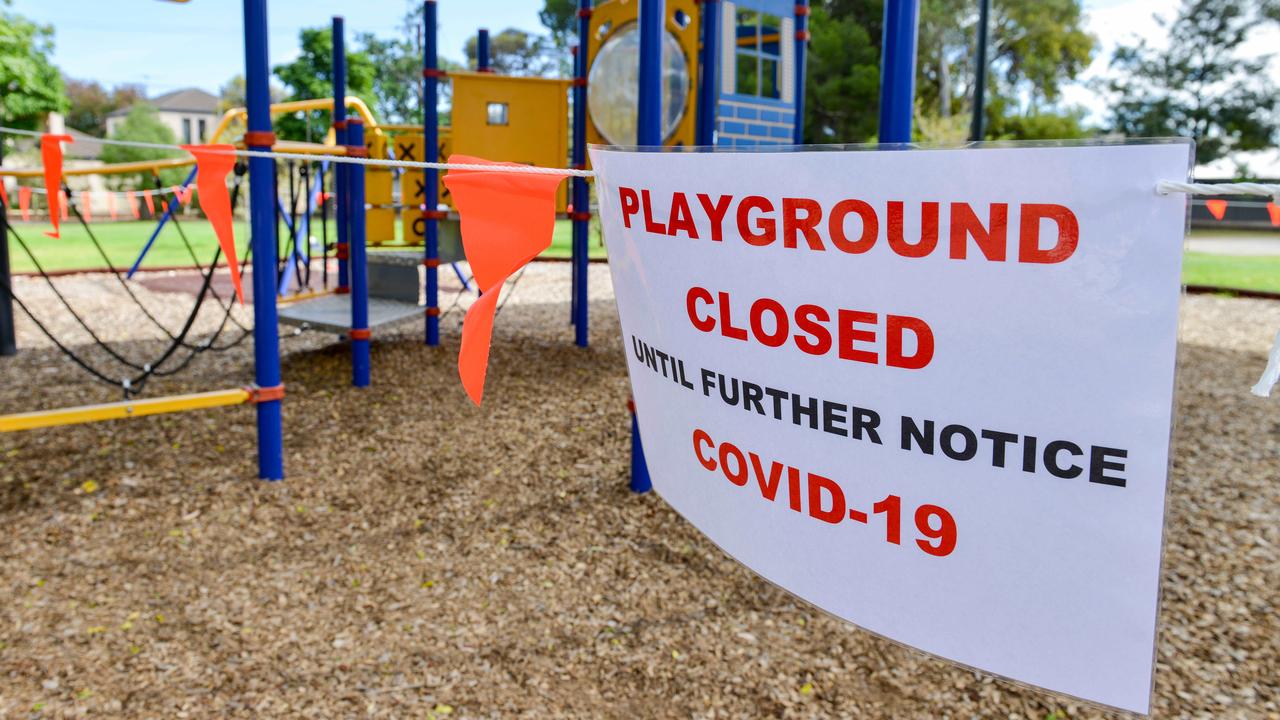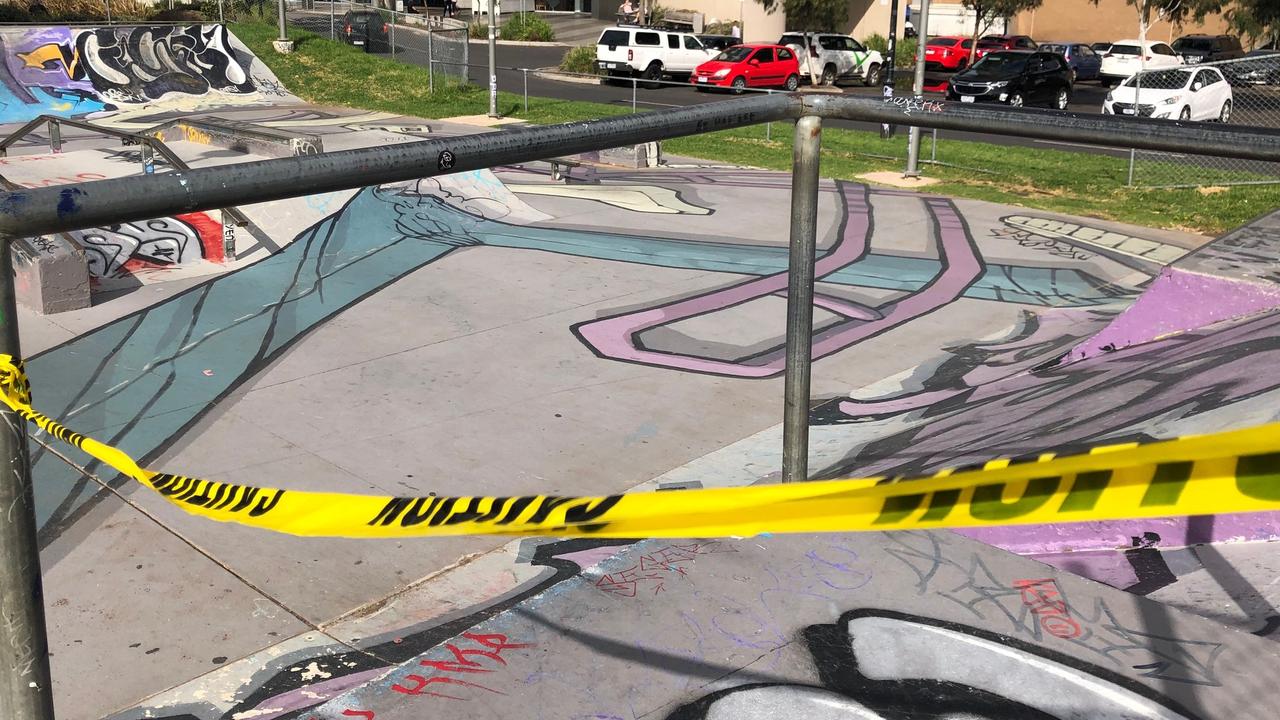Coronavirus Australia: Why playgrounds, outdoor gyms had to close
The rate of new virus cases may be dropping in NSW, but a new graph shows why playgrounds, gyms and skate parks had to shut – community transmission is on the rise.
The rate of new coronavirus cases in NSW may be dropping, but community transmission – when the virus passes from one person to another without them knowing – is on the rise.
In the past seven days, there has been a 350 per cent surge in infections caught locally with no known link of disease, emphasising the importance of the Federal Government’s decision to take COVID-19 prevention measures further, increasing social gathering bans and closing outdoor gyms, skate parks and playgrounds.
As of today, police in NSW have the power to issue on-the-spot fines of $1000 to anyone congregating – indoors or outdoors – in groups of more than two people (excluding those in your immediate household).
While the number of new cases has stabilised – which health authorities attribute to a fall in returning travellers and social restrictions starting to take effect – Premier Gladys Berejiklian said this morning “what is of concern” is the “unknown level of community transmission if people don’t have symptoms”.
“That’s the real threat,” Ms Berejiklian told media. “People walking around without symptoms while they have this disease.”
RELATED: Follow the latest coronavirus updates
Australia’s deputy chief medical officer Paul Kelly called the steadily increasing number “the most concerning component of the figure we’ve had to date”.
NSW chief health officer Kerry Chant said this morning “out of an abundance of caution” the Government would be upping its testing rate and introducing pop-up clinics to facilitate this, particularly in Sydney’s eastern suburbs where the largest number of COVID-19 cases with no known source are.
Bondi is at the heart of one of the city’s coronavirus outbreaks after hundreds were captured ignoring social distancing measures and a group of backpackers became infected with COVID-19.
“We know there is a potential risk that other members of the community may have come in contact with infected backpackers,” Dr Chant said.
“We’ve had a small number of cases in that community where there aren’t obvious links, but a plausible explanation is they have come into contact with an infected backpacker before that backpacker was aware they had COVID-19.”
RELATED: Suburbs worst hit by virus outbreaks

Dr Chant explained the aim of increasing testing was to “rapidly identify cases” and “prevent any onward transmission in the community”.
“This important public health measure complements the social distancing strategies that the Government has put in place,” she said.
“I really want the community to step up and make sure that you stick to the rules we’ve set in place,” the Premier said, adding NSW had entered “the serious stage of the virus”.
“Do not leave your home unless you absolutely have to. Do not gather more than two people outside or inside your home and make sure you take every social distancing precautions when you’re out.”
While Ms Berejiklian assured people the State Government were taking every strict measure it could to control the spread, the “unknown threat” of community transmission could put lives at stake if people didn’t adhere to the new restrictions.
RELATED: How ‘flattening the curve’ saves lives


Australia’s chief medical officer Brendan Murphy had a similar message for all Australians on Sunday night.
“If people don’t take this seriously and we get big community outbreaks, they will be very hard to control,” Professor Murphy said.
While the Government has “no intention” of losing control and becoming like America, Italy or Spain – where the virus has hit the hardest – Prof Murphy said “every single Australian needs to take this seriously or community transmission could get out of control and we could have a situation which is as terrible we’re seeing in the US even at the moment”.
As of this morning, NSW remains Australia’s worst-hit state or territory by coronavirus so far with 2032 confirmed cases of the disease. Around the country, 19 people have died.




